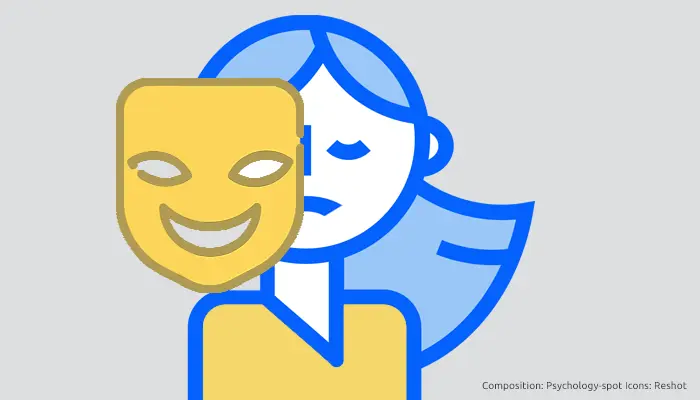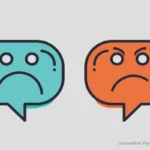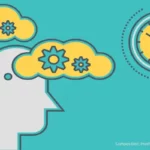
Happiness. This slippery concept has become one of our main goals in life, not to say the primordial one. We all seek happiness. We all aspire to it.
But what is it? What do you imagine when you think about happiness?
If you have a traditional notion of happiness, it is likely that your mind goes to a comfortable setting, devoid of worries, anxieties, sadness… In other words: in paradise.
That is an artificial happiness, the happiness that we have been sold – and we bought – in the style of “soma”, the drug that Aldous Huxley imagined in his novel “Brave new world” that was the perfect remedy for depression, anxiety, insomnia and all those “negative” emotions that we can imagine or feel.
There is only one problem: That happiness is not happiness.
The false ideal of happiness that we have been sold – and we have bought
When we dream of happiness, we imagine a place free of suffering: a place where anxiety, guilt prit, melancholy and anger have no place. We imagine a scenario in which our worries and mental battles collapse because we have no reason to feel grief, tension or suffering.
That concept of happiness is not only chimerical but also precarious. Why? Due to the flow of life, to the fact that we are subject to a constant transience, the conditions of our existence do not remain stable, but change continuously.
Our moods, our assets, our liabilities, our relationships and all the other conditions of our existence do not remain constant. The unforeseen misfortunes, the conflicts, the anguish, the worries, the problems will return again and again disturbing the ephemeral happiness that we believe we have found.
Then we despair. We become frustrated when we realize that we can not obtain or retain what is supposed to make us happy. That is precisely the state that best suits the consumer society, frustration, because it drives us to buy the next “can of happiness” in the hope that this will be the final one.
The more you feel that you should be happy, the more unhappy you will be
Artifical happiness has a trap. When we are told that we should be happy, and not only we are indicated the supposed path to happiness but also the things that should make us happy and we are even told what is the concept of happiness that we should pursue, we have a high probability of being unhappy.
It was verified by psychologists from the University of Queensland, who discovered that the cultural expectations that force us to be happy actually have an opposite effect since they increase sadness. And the stronger that expectation is, the more negative emotions it will generate. People who think they should be happy tend to evaluate their feelings and emotions more negatively.
The problem is not happiness itself, but the concept of happiness that we have been sold. When we realize that we can not reach it, we become sad and frustrated. To better understand this psychological mechanism, it is enough to think of our “ego” as a small child whose parents embody the role of society. If our parents constantly tell us that we have to get good grades (without taking into account our real abilities), we will feel tense, that stress will undermine our performance and before the slightest failure the world will fall apart.
“All the cans tell you in their label that they contain happiness and you, believing it, buy one to discover once opened, that no, happiness must be something else. Than you throw that can to buy a new one with which it happens the same thing, without realizing that happiness is not inside a can, but within yourself, which, if you do not have it close to your heart and your mind, is that you do not have it, and you will not have it for many different cans that you buy and open. Once came the very moment and before the impossibility of finding the artificial happiness of which they speak to you and sell you, you look for some support to be able to bear so much frustration, so much disappointment, so much waste for nothing, and then is when you enter the pharmacy to buy happiness which, as you have been told, is contained in the chemical formulas of some pills and medicines, but which, like the cans of happiness, don’t have it inside; but unlike cans that you can throw away, you will not be able to throw away pills and medicines because, once inside your organism, you can not live without them”, said the writer Manuel del Rosal.
Redefining happiness: In search of balance and pragmatism
“If happiness always depends on the future, we are chasing a will-o-the-wisp … eludes our grasp, until the future, and ourselves, vanish in the abyss of death”, said Alan Watts.
Authentic happiness, or at least one that we can aspire to and that really gives us satisfaction, consists in accepting, embracing and even laughing at our pain, worries and frustrations.
Actually, the emotions we label as “negative” are not a bad thing because they allow us to value much more the moments of peace, tranquility and joy… After all, the greatest satisfaction does not consist in reaching the goal but in the way we walk, it does not lie in constancy but in transformation, in growth.
And although it may seem counterintuitive, the road to happiness is through discomfort. It is the tumultuous, difficult and often irritating periods of life that reveal us our true value and exalt the need to focus on those things that make us happy.
The objective is to understand that those feelings that we have always labeled as negative, are actually part of the flow of life and are precursors of our growth, because they allow us to go through the different levels of self-knowledge.
Suffering is not the antithesis of happiness, rather it is a driving force that can lead us to it. We need, imperiously, to realize that these “negative” emotions will not cease. We can resist, frustrate and embitter ourselves. Or we can learn to deal with them, channel their energy and strengthen ourselves.
When we achieve it, we can face the most powerful storm. Then our daily suffering becomes infinitely more bearable. We will be able to find moments of happiness in the middle of the storm. We will breathe a sigh of relief. We will discover that happiness was there all the time. It was just a matter of perspective. Or maybe wisdom. To stop looking out and start looking inward.
Sources:
Bates, J. (2014) The Impossibility of Traditional “Happiness” (And How We Must Re-Define It) In: Creativiy Post.
Bastian, B. et. Al. (2012) Feeling bad about being sad: the role of social expectancies in amplifying negative mood. Emotion; 12 (1): 69-80.




Joaquim Moura says
The article addresses the mental, or intellectual, or psychological level of the issue of happiness, but there are other dimensions of our being that determine our access to and cultivation of a happy condition.
For example, the physical level (health, fitness, flexibility, etc.); or the energetic level (relaxation, breathing, mood, mood, interaction with external energy).
Perennial philosophy and the pursuit of wisdom also help us to learn that we are one with the universe, and equally ephemeral and eternal. This awareness that skin (and death) is not the limit of our being can lead us to act beyond egoism, for the sake of humanity, nature and the future.
Happiness comes together …